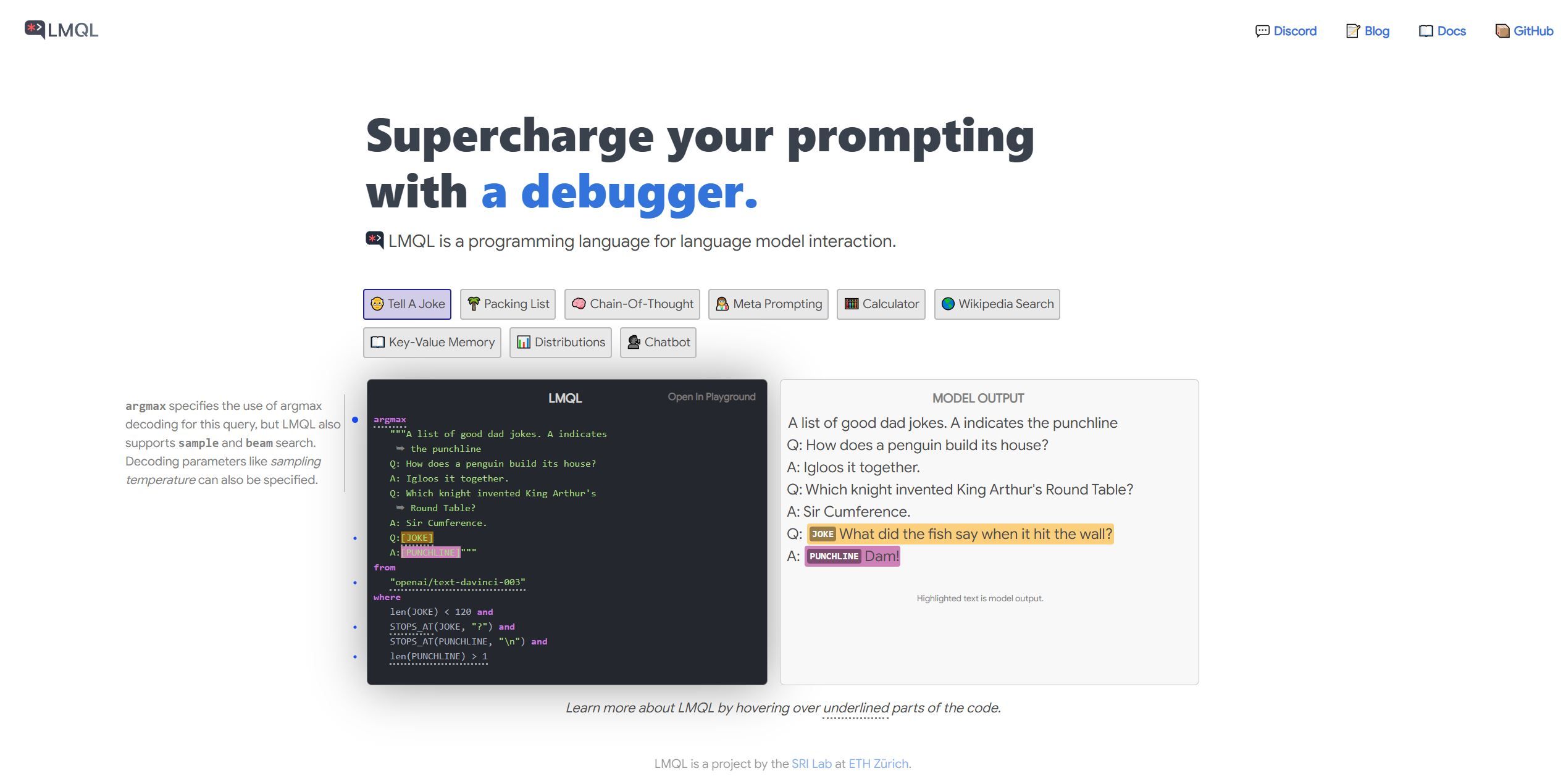
LMQL is a query language specifically designed for large language models (LLMs), combining natural language prompts with the expressiveness of Python. It provides features such as constraints, debugging, retrieval, and control flow to facilitate interaction with LLMs. Key Features: Constraints: Specify conditions for the generated output to meet specific criteria. Debugging: Analyze and understand how the LLM generates the output, helping in fine-tuning and error identification. Retrieval: Access pre-built prompts for common tasks, providing a convenient starting point. Control Flow: Use Python control flow statements to have more control over the generation process. Automatic Token Generation and Validation: Generate the required tokens automatically and validate the produced sequence based on provided constraints. Support for Arbitrary Python Code: Include dynamic prompts and text processing using Python code. Use Cases: Natural Language Generation: LMQL enables users to generate natural language responses from LLMs with fine-grained control and constraints. Customized Conversational Agents: Users can create chatbot-like interactions with LLMs by leveraging the control flow and constraint features of LMQL. Task Automation: LMQL can be used to automate specific tasks such as generating packing lists, summarizing text, or performing simple data retrieval from online sources. Advanced Text Processing: The support for arbitrary Python code in LMQL allows users to perform complex text processing tasks within the prompt. LMQL is a powerful query language designed to enhance the interaction with LLMs, offering a range of features that provide control, flexibility, and customization.

